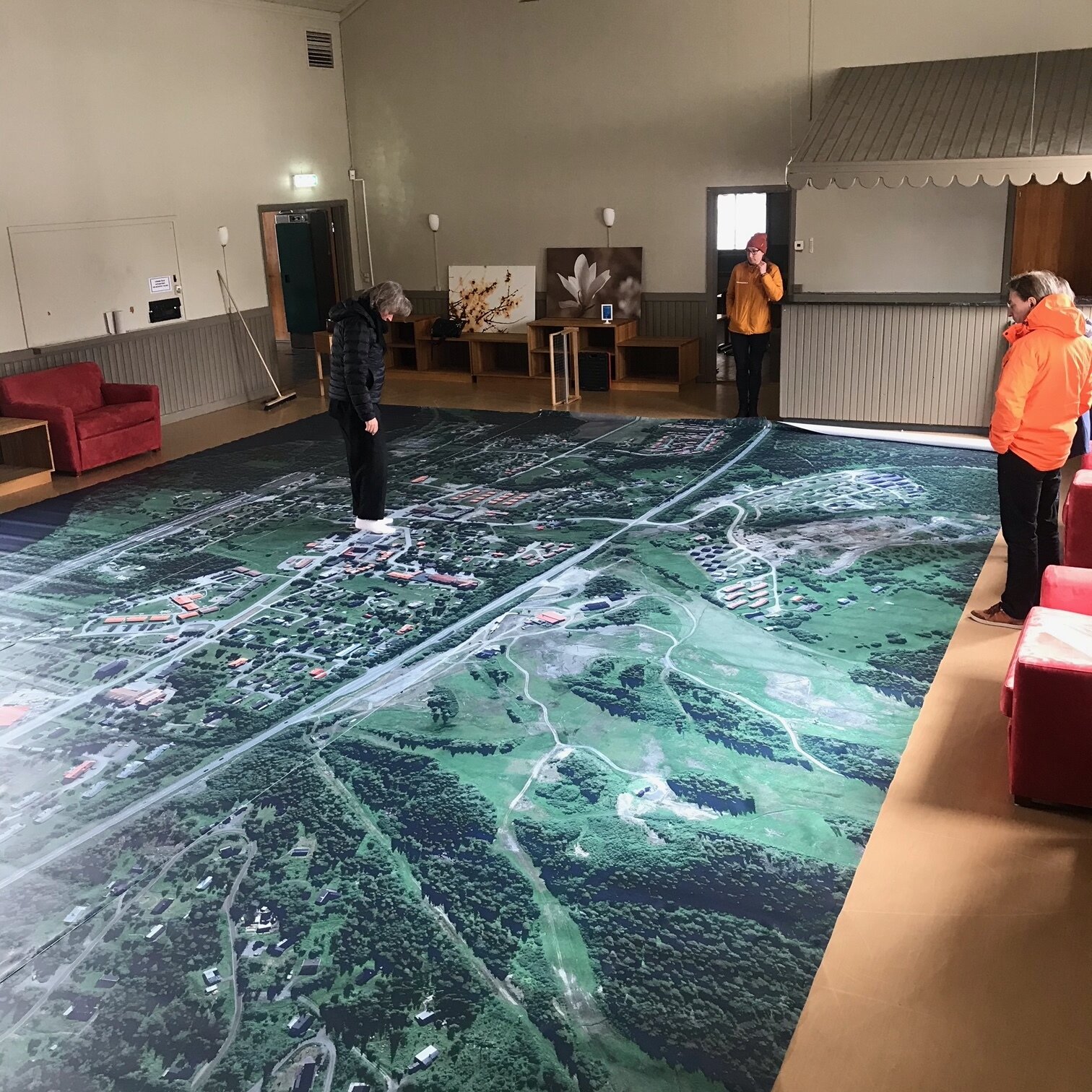
How a rural village is turned into a tool for societal innovation and democratic development
Innovation and sustainability
The process of developing Duved, a small village in the North-West of Sweden, is based on the insight that in today’s society it is no longer cities that has the potential of being the innovation engine for societal development, as back in the industrial era. On the contrary, today it is the village – with its tradition of sharing and cooperation – that has the possibility to generate solutions to address the challenges that the world so badly needs. This is a need on both a local and a global scale – and addresses a new possibility: the fusion between a return to handicraft through digital efficiency as well as that of an updated democratic model. With the current world situation it is apparent that the world needs to update democracy and strengthen local production.

The village
As the world urgently need to move from industrial, centrally driven models, the village is the needed tool to generate a shift – where the local and the handicraft can be turned into the accessible and affordable through digital tools and efficiency.
Jan Åman:
“It is all about switching positions, to find a better outlook on today’s possibilities – instead of cities and buildings we need to look at the rural and on the future (local) food systems to move ahead toward what is needed, for the rural as well as the urban.”
The design processes
The process of developing Duved is based on generating a new relevance for the aesthetic and for design. This is done in many ways. As the image show it is based on a participatory and inclusive process, starting in local and global needs and letting ideas from locals be processed by top creatives to generate prototypes to be tested in Duved - with a possibility to be implemented elsewhere.

All at the same time
The process in Duved is based on developing all segments at the same time – to generate cross-effects between different segments. This can be done because it is a rather small village, currently with around 1.000 inhabitants.
Campus without university
Several academic institutions have been involved in the process. Duved has also been lectured on at top universities such as Harvard GSD and the ETHZ in Zürich. All this because the idea of sustainability has been - in every single step - been matched by the idea of inclusion as well as that of a new design process with aesthetic vision.
Communication: summits and Duved exhibition
From the very start the processes was based on a strong communication strategy. It is a strategy totally based on content, involvement, innovation and participation. The local engagement has since day one been matched by generating a strong national network to give Duved a long term legitimate status as innovation hub, beyond political positions. This has successful.



